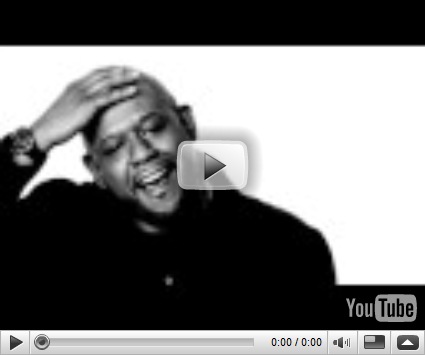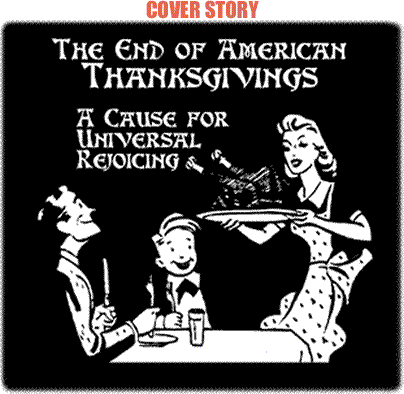
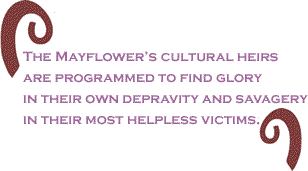
Nobody celebrates Thanksgiving quite like Americans celebrate Thanksgiving. It is reserved by history and the intent of “the founders” as the supremely white American holiday, the most ghoulish event on the national calendar. No Halloween of the imagination can rival the exterminationist reality that was the genesis, and remains the legacy, of the American Thanksgiving. It is the most loathsome, humanity-insulting day of the year – a pure glorification of racist barbarity.
We at BC are thankful that the day grows nearer when the almost four centuries-old abomination will be deprived of its reason for being: white supremacy. Then we may all eat and drink in peace and gratitude for the blessings of humanity’s deliverance from the rule of evil men.
Thanksgiving is much more than a lie – if it were that simple, an historical correction of the record of events in 1600s Massachusetts would suffice to purge the “flaw” in the national mythology. But Thanksgiving is not just a twisted fable, and the mythology it nurtures is itself inherently evil. The real-life events – subsequently revised – were perfectly understood at the time as the first, definitive triumphs of the genocidal European project in New England. The near-erasure of Native Americans in Massachusetts and, soon thereafter, from most of the remainder of the northern English colonial seaboard was the true mission of the Pilgrim enterprise – Act One of the American Dream. African Slavery commenced contemporaneously – an overlapping and ultimately inseparable
Act Two.
The last Act in the American drama must be the “root and branch” eradication of all vestiges of Act One and Two – America’s seminal crimes and formative projects. Thanksgiving as presently celebrated – that is, as a national political event – is an affront to civilization.
Celebrating the unspeakable
White America embraced Thanksgiving because a majority of that population glories in the fruits, if not the unpleasant details, of genocide and slavery and feels, on the whole, good about their heritage: a cornucopia of privilege and national power. Children are taught to identify with the good fortune of the Pilgrims. It does not much matter that the Native American and African holocausts that flowed from the feast at Plymouth are hidden from the children’s version of the story – kids learn soon enough that Indians were made scarce and Africans became enslaved. But they will also never forget the core message of the holiday: that the Pilgrims were good people, who could not have purposely set such evil in motion. Just as the first Thanksgivings marked the consolidation of the English toehold in what became the United States, the core ideological content of the holiday serves to validate all that has since occurred on these shores – a national consecration of the unspeakable, a balm and benediction for the victors, a blessing of the fruits of murder and kidnapping, and an implicit obligation to continue the seamless historical project in the present day.
The Thanksgiving story is an absolution of the Pilgrims, whose brutal quest for absolute power in the New World is made to seem both religiously motivated and eminently human. Most importantly, the Pilgrims are depicted as victims – of harsh weather and their own naïve yet wholesome visions of a new beginning. In light of this carefully nurtured fable, whatever happened to the Indians, from Plymouth to California and beyond, in the aftermath of the 1621 dinner must be considered a mistake, the result of misunderstandings – at worst, a series of lamentable tragedies. The story provides the essential first frame of the American saga. It is unalloyed racist propaganda, a tale that endures because it served the purposes of a succession of the Pilgrims’ political heirs, in much the same way that Nazi-enhanced mythology of a glorious Aryan/German past advanced another murderous, expansionist mission.
Thanksgiving is quite dangerous – as were the Pilgrims.
Rejoicing in a cemetery
The English settlers, their ostensibly religious venture backed by a trading company, were glad to discover that they had landed in a virtual cemetery in 1620. Corn still sprouted in the abandoned fields of the Wampanoags, but only a remnant of the local population remained around the fabled Rock. In a letter to England, Massachusetts Bay colony founder John Winthrop wrote, "But for the natives in these parts, God hath so pursued them, as for 300 miles space the greatest part of them are swept away by smallpox which still continues among them. So as God hath thereby cleared our title to this place, those who remain in these parts, being in all not 50, have put themselves under our protection."
Ever diligent to claim their own advantages as God’s will, the Pilgrims thanked their deity for having “pursued” the Indians to mass death. However, it was not divine intervention that wiped out most of the natives around the village of Patuxet but, most likely, smallpox-embedded blankets planted during an English visit or slave raid. Six years before the Pilgrim landing, a ship sailed into Patuxet’s harbor, captained by none other than the famous seaman and mercenary soldier John Smith, former leader of the first successful English colony in the New World, at Jamestown, Virginia. Epidemic and slavery followed in his wake, as Debra Glidden described in IMDiversity.com:
In 1614 the Plymouth Company of England, a joint stock company, hired Captain John Smith to explore land in its behalf. Along what is now the coast of Massachusetts in the territory of the Wampanoag, Smith visited the town of Patuxet according to "The Colonial Horizon," a 1969 book edited by William Goetzinan. Smith renamed the town Plymouth in honor of his employers, but the Wampanoag who inhabited the town continued to call it Patuxet.
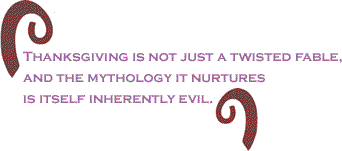
The following year Captain Hunt, an English slave trader, arrived at Patuxet. It was common practice for explorers to capture Indians, take them to Europe and sell them into slavery for 220 shillings apiece. That practice was described in a 1622 account of happenings entitled "A Declaration of the State of the Colony and Affairs in Virginia," written by Edward Waterhouse. True to the explorer tradition, Hunt kidnapped a number of Wampanoags to sell into slavery.
Another common practice among European explorers was to give "smallpox blankets" to the Indians. Since smallpox was unknown on this continent prior to the arrival of the Europeans, Native Americans did not have any natural immunity to the disease so smallpox would effectively wipe out entire villages with very little effort required by the Europeans. William Fenton describes how Europeans decimated Native American villages in his 1957 work "American Indian and White relations to 1830." From 1615 to 1619 smallpox ran rampant among the Wampanoags and their neighbors to the north. The Wampanoag lost 70 percent of their population to the epidemic and the Massachusetts lost 90 percent.
Most of the Wampanoag had died from the smallpox epidemic so when the Pilgrims arrived they found well-cleared fields which they claimed for their own. A Puritan colonist, quoted by Harvard University's Perry Miller, praised the plague that had wiped out the Indians for it was "the wonderful preparation of the Lord Jesus Christ, by his providence for his people's abode in the Western world."
Historians have since speculated endlessly on why the woods in the region resembled a park to the disembarking Pilgrims in 1620. The reason should have been obvious: hundreds, if not thousands, of people had lived there just five years before.
In less than three generations the settlers would turn all of New England into a charnel house for Native Americans, and fire the economic engines of slavery throughout English-speaking America. Plymouth Rock is the place where the nightmare truly began.
The uninvited?
It is not at all clear what happened at the first – and only – “integrated” Thanksgiving feast. Only two written accounts of the three-day event exist, and one of them, by Governor William Bradford, was written 20 years after the fact. Was Chief Massasoit invited to bring 90 Indians with him to dine with 52 colonists, most of them women and children? This seems unlikely. A good harvest had provided the settlers with plenty of food, according to their accounts, so the whites didn’t really need the Wampanoag’s offering of five deer. What we do know is that there had been lots of tension between the two groups that fall. John Two-Hawks, who runs the Native Circle web site, gives a sketch of the facts:
“Thanksgiving' did not begin as a great loving relationship between the pilgrims and the Wampanoag, Pequot and Narragansett people. In fact, in October of 1621 when the pilgrim survivors of their first winter in Turtle Island sat down to share the first unofficial 'Thanksgiving' meal, the Indians who were there were not even invited! There was no turkey, squash, cranberry sauce or pumpkin pie. A few days before this alleged feast took place, a company of 'pilgrims' led by Miles Standish actively sought the head of a local Indian chief, and an 11 foot high wall was erected around the entire Plymouth settlement for the very purpose of keeping Indians out!”
It is much more likely that Chief Massasoit either crashed the party, or brought enough men to ensure that he was not kidnapped or harmed by the Pilgrims. Dr. Tingba Apidta, in his “Black Folks’ Guide to Understanding Thanksgiving,” surmises that the settlers “brandished their weaponry” early and got drunk soon thereafter. He notes that “each Pilgrim drank at least a half gallon of beer a day, which they preferred even to water. This daily inebriation led their governor, William Bradford, to comment on his people's ‘notorious sin,’ which included their ‘drunkenness and uncleanliness’ and rampant ‘sodomy.’”
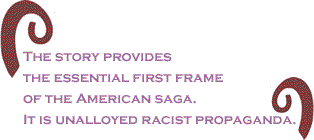
Soon after the feast the brutish Miles Standish “got his bloody prize,” Dr. Apidta writes:
“He went to the Indians, pretended to be a trader, then beheaded an Indian man named Wituwamat. He brought the head to Plymouth, where it was displayed on a wooden spike for many years, according to Gary B. Nash, ‘as a symbol of white power.’ Standish had the Indian man's young brother hanged from the rafters for good measure. From that time on, the whites were known to the Indians of Massachusetts by the name ‘Wotowquenange,’ which in their tongue meant cutthroats and stabbers.”
What is certain is that the first feast was not called a “Thanksgiving” at the time; no further integrated dining occasions were scheduled; and the first, official all-Pilgrim “Thanksgiving” had to wait until 1637, when the whites of New England celebrated the massacre of the Wampanoag’s southern neighbors, the Pequots.
The real Thanksgiving Day Massacre
The Pequots today own the Foxwood Casino and Hotel, in Ledyard, Connecticut, with gross gaming revenues of over $9 billion in 2000. This is truly a (very belated) miracle, since the real first Pilgrim Thanksgiving was intended as the Pequot’s epitaph. Sixteen years after the problematical Plymouth feast, the English tried mightily to erase the Pequots from the face of the Earth, and thanked God for the blessing.
Having subdued, intimidated or made mercenaries of most of the tribes of Massachusetts, the English turned their growing force southward, toward the rich Connecticut valley, the Pequot’s sphere of influence. At the point where the Mystic River meets the sea, the combined force of English and allied Indians bypassed the Pequot fort to attack and set ablaze a town full of women, children and old people.
William Bradford, the former Governor of Plymouth and one of the chroniclers of the 1621 feast, was also on hand for the great massacre of 1637:
"Those that escaped the fire were slain with the sword; some hewed to pieces, others run through with their rapiers, so that they were quickly dispatched and very few escaped. It was conceived they thus destroyed about 400 at this time. It was a fearful sight to see them thus frying in the fire...horrible was the stink and scent thereof, but the victory seemed a sweet sacrifice, and they gave the prayers thereof to God, who had wrought so wonderfully for them, thus to enclose their enemies in their hands, and give them so speedy a victory over so proud and insulting an enemy."
The rest of the white folks thought so, too. “This day forth shall be a day of celebration and thanksgiving for subduing the Pequots," read Governor John Winthrop’s proclamation. The authentic Thanksgiving Day was born.
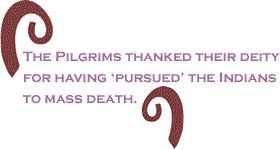
Most historians believe about 700 Pequots were slaughtered at Mystic. Many prisoners were executed, and surviving women and children sold into slavery in the West Indies. Pequot prisoners that escaped execution were parceled out to Indian tribes allied with the English. The Pequot were thought to have been extinguished as a people. According to IndyMedia, “The Pequot tribe numbered 8,000 when the Pilgrims arrived, but disease had brought their numbers down to 1,500 by 1637. The Pequot ‘War’ killed all but a handful of remaining members of the tribe.”
But there were still too many Indians around to suit the whites of New England, who bided their time while their own numbers increased to critical, murderous mass.
Guest’s head on a pole
By the 1670s the colonists, with 8,000 men under arms, felt strong enough to demand that the Pilgrims’ former dinner guests the Wampanoags disarm and submit to the authority of the Crown. After a series of settler provocations in 1675, the Wampanoag struck back, under the leadership of Chief Metacomet, son of Massasoit, called King Philip by the English. Metacomet/Philip, whose wife and son were captured and sold into West Indian slavery, wiped out 13 settlements and killed 600 adult white men before the tide of battle turned. A 1996 issue of the Revolutionary Worker provides an excellent narrative.
In their victory, the settlers launched an all-out genocide against the remaining Native people. The Massachusetts government offered 20 shillings bounty for every Indian scalp, and 40 shillings for every prisoner who could be sold into slavery. Soldiers were allowed to enslave any Indian woman or child under 14 they could capture. The "Praying Indians" who had converted to Christianity and fought on the side of the European troops were accused of shooting into the treetops during battles with "hostiles." They were enslaved or killed. Other "peaceful" Indians of Dartmouth and Dover were invited to negotiate or seek refuge at trading posts – and were sold onto slave ships.
It is not known how many Indians were sold into slavery, but in this campaign, 500 enslaved Indians were shipped from Plymouth alone. Of the 12,000 Indians in the surrounding tribes, probably about half died from battle, massacre and starvation.
After King Philip's War, there were almost no Indians left free in the northern British colonies. A colonist wrote from Manhattan's New York colony: "There is now but few Indians upon the island and those few no ways hurtful. It is to be admired how strangely they have decreased by the hand of God, since the English first settled in these parts." In Massachusetts, the colonists declared a "day of public thanksgiving" in 1676, saying, "there now scarce remains a name or family of them but are either slain, captivated or fled."
Fifty-five years after the original Thanksgiving Day, the Puritans had destroyed the generous Wampanoag and all other neighboring tribes. The Wampanoag chief King Philip was beheaded. His head was stuck on a pole in Plymouth, where the skull still hung on display 24 years later.
This is not thought to be a fit Thanksgiving tale for the children of today, but it’s the real story, well-known to the settler children of New England at the time – the white kids who saw the Wampanoag head on the pole year after year and knew for certain that God loved them best of all, and that every atrocity they might ever commit against a heathen, non-white was blessed.
There’s a good term for the process thus set in motion: nation-building.
Roots of the slave trade
The British North American colonists’ practice of enslaving Indians for labor or direct sale to the West Indies preceded the appearance of the first chained Africans at the dock in Jamestown, Virginia, in 1619. The Jamestown colonists’ human transaction with the Dutch vessel was an unscheduled occurrence. However, once the African slave trade became commercially established, the fates of Indians and Africans in the colonies became inextricably entwined. New England, born of up-close-and-personal, burn-them-in-the-fires-of-hell genocide, led the political and commercial development of the English colonies. The region also led the nascent nation’s descent into a slavery-based society and economy.
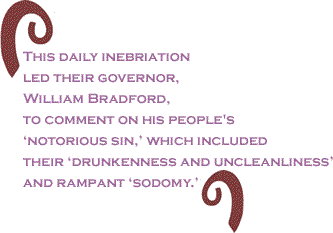
Ironically, an apologist for Virginian slavery made one of the best, early cases for the indictment of New England as the engine of the American slave trade. Unreconstructed secessionist Lewis Dabney’s 1867 book “A Defense of Virginia” traced the slave trade’s origins all the way back to Plymouth Rock:
The planting of the commercial States of North America began with the colony of Puritan Independents at Plymouth, in 1620, which was subsequently enlarged into the State of Massachusetts. The other trading colonies, Rhode Island and Connecticut, as well as New Hampshire (which never had an extensive shipping interest), were offshoots of Massachusetts. They partook of the same characteristics and pursuits; and hence, the example of the parent colony is taken here as a fair representation of them.
The first ship from America, which embarked in the African slave trade, was the Desire, Captain Pierce, of Salem; and this was among the first vessels ever built in the colony. The promptitude with which the "Puritan Fathers" embarked in this business may be comprehended, when it is stated that the Desire sailed upon her voyage in June, 1637. The first feeble and dubious foothold was gained by the white man at Plymouth less than seventeen years before; and as is well known, many years were expended by the struggle of the handful of settlers for existence. So that it may be correctly said, that the commerce of New England was born of the slave trade; as its subsequent prosperity was largely founded upon it. The Desire, proceeding to the Bahamas, with a cargo of "dry fish and strong liquors, the only commodities for those parts," obtained the negroes from two British men-of-war, which had captured them from a Spanish slaver.
Thus, the trade of which the good ship Desire, of Salem, was the harbinger, grew into grand proportions; and for nearly two centuries poured a flood of wealth into New England, as well as no inconsiderable number of slaves. Meanwhile, the other maritime colonies of Rhode Island and Providence Plantations, and Connecticut, followed the example of their elder sister emulously; and their commercial history is but a repetition of that of Massachusetts. The towns of Providence, Newport, and New Haven became famous slave trading ports. The magnificent harbor of the second, especially, was the favorite starting-place of the slave ships; and its commerce rivaled, or even exceeded, that of the present commercial metropolis, New York. All the four original States, of course, became slaveholding.
The Revolution that exploded in 1770s New England was undertaken by men thoroughly imbued with the worldview of the Indian-killer and slave-holder. How could they not be? The “country” they claimed as their own was fathered by genocide and mothered by slavery – its true distinction among the commercial nations of the world. And these men were not ashamed, but proud, with vast ambition to spread their exceptional characteristics West and South and wherever their so-far successful project in nation-building might take them – and by the same bloody, savage methods that had served them so well in the past.
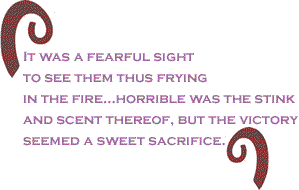
At the moment of deepest national crisis following the battle of Gettysburg in 1863, President Abraham Lincoln invoked the national fable that is far more central to the white American personality than Lincoln’s battlefield “Address.” Lincoln seized upon the 1621 feast as the historic “Thanksgiving” – bypassing the official and authentic 1637 precedent – and assigned the dateless, murky event the fourth Thursday in November.
Lincoln surveyed a broken nation, and attempted nation-rebuilding, based on the purest white myth. The same year that he issued the Emancipation Proclamation, he renewed the national commitment to a white manifest destiny that began at Plymouth Rock. Lincoln sought to rekindle a shared national mission that former Confederates and Unionists and white immigrants from Europe could collectively embrace. It was and remains a barbaric and racist national unifier, by definition. Only the most fantastic lies can sanitize the history of the Plymouth Colony of Massachusetts.
”Like a rock”
The Thanksgiving holiday fable is at once a window on the way that many, if not most, white Americans view the world and their place in it, and a pollutant that leaches barbarism into the modern era. The fable attempts to glorify the indefensible, to enshrine an era and mission that represent the nation’s lowest moral denominators. Thanksgiving as framed in the mythology is, consequently, a drag on that which is potentially civilizing in the national character, a crippling, atavistic deformity. Defenders of the holiday will claim that the politically-corrected children’s version promotes brotherhood, but that is an impossibility – a bald excuse to prolong the worship of colonial “forefathers” and to erase the crimes they committed. Those bastards burned the Pequot women and children, and ushered in the multinational business of slavery. These are facts. The myth is an insidious diversion – and worse.
Humanity cannot tolerate a 21st Century superpower, much of whose population perceives the world through the eyes of 17th Century land and flesh bandits. Yet that is the trick that fate has played on the globe. We described the roots of the planetary dilemma in our March 13, 2003 commentary, “Racism & War, Perfect Together.”
The English arrived with criminal intent - and brought wives and children to form new societies predicated on successful plunder. To justify the murderous enterprise, Indians who had initially cooperated with the squatters were transmogrified into "savages" deserving displacement and death. The relentlessly refreshed lie of Indian savagery became a truth in the minds of white Americans, a fact to be acted upon by every succeeding generation of whites. The settlers became a singular people confronting the great "frontier" - a euphemism for centuries of genocidal campaigns against a darker, "savage" people marked for extinction.
The necessity of genocide was the operative, working assumption of the expanding American nation. "Manifest Destiny" was born at Plymouth Rock and Jamestown, later to fall (to paraphrase Malcolm) like a rock on Mexico, the Philippines, Haiti, Nicaragua, etc. Little children were taught that the American project was inherently good, Godly, and that those who got in the way were "evil-doers" or just plain subhuman, to be gloriously eliminated. The lie is central to white American identity, embraced by waves of European settlers who never saw a red person.
Only a century ago, American soldiers caused the deaths of possibly a million Filipinos whom they had been sent to “liberate” from Spanish rule. They didn’t even know who they were killing, and so rationalized their behavior by substituting the usual American victims. Colonel Funston, of the Twentieth Kansas Volunteers, explained what got him motivated in the Philippines:
"Our fighting blood was up and we all wanted to kill 'niggers.' This shooting human beings is a 'hot game,' and beats rabbit hunting all to pieces." Another wrote that "the boys go for the enemy as if they were chasing jack-rabbits .... I, for one, hope that Uncle Sam will apply the chastening rod, good, hard, and plenty, and lay it on until they come into the reservation and promise to be good 'Injuns.'"
Our military leaders in Iraq continue to personify the unfitness of Americans to play a major role in the world, much less rule it.
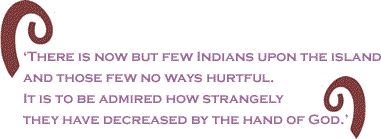
What does this have to do with the Mayflower? Everything. Although possibly against their wishes, the Pilgrims hosted the Wampanoag for three no doubt anxious days. The same men killed and enslaved Wampanoags immediately before and after the feast. They, their newly arrived English comrades and their children roasted hundreds of neighboring Indians alive just 16 years later, and two generations afterwards cleared nearly the whole of New England of its indigenous “savages,” while enthusiastically enriching themselves through the invention of transoceanic, sophisticated means of enslaving millions. The Mayflower’s cultural heirs are programmed to find glory in their own depravity and savagery in their most helpless victims, who can only redeem themselves by accepting the inherent goodness of white Americans.
Thanksgiving encourages these cognitive cripples in their madness, just as it is designed to do.
Things are looking up
We began this essay by saying that “the day grows nearer when the almost four centuries-old abomination will be deprived of its reason for being: white supremacy.” We firmly believe this. The wired world works against the Bushites insane leap to global hegemony, while creating the material basis for (dare we say the words) brother- and sisterhood among humankind. It becomes clear that the fruits of millennia of human genius cannot be captured and packaged for the enrichment of a few for much longer – and certainly not by a cabal that cannot see beyond the bubble of its own, warped history. The dim outlines of a new and more democratic world order can be seen in the often tentative, but sometimes dramatic actions of movements and nations determined to construct a fairer way to live. As the world witnesses the brutality, stupidity and sheer incompetence of the Pirates currently at the helm of the United States, the urgency of a common, alternative human project becomes apparent to all. The “end of history” that the Bushites triumphantly announce is really the end of them, through a process they have accelerated with every deranged action and delusional strategy they have undertaken since 2001.
They are like men in quicksand. White racism as a global scourge will sink with them, and eventually whither to a mere prejudice rather than a world-threatening menace.
We at BC are thankful to be alive in the knowledge that a new world is just over the horizon, close enough to sense, even if we never see it.
We are optimistic about our struggle in the United States – if not, we would never encourage anybody to fight and struggle for anything.
We are thankful for our hope that Barack Obama is the real thing and a genuine social democrat who will with our support and criticism push the envelope in civilized directions.
We are thankful we can renew our confidence in African Americans, citizens of the African World and all other people of good will who will continue to be part of the movement for economic justice, social justice and peace.
Any BlackCommentator.com article may be re-printed as long as it is re-printed in its entirety and full credit given to the author and www.BlackCommentator.com . If the re-print is on the Internet we additionally request a link back to the original piece on our Website.









